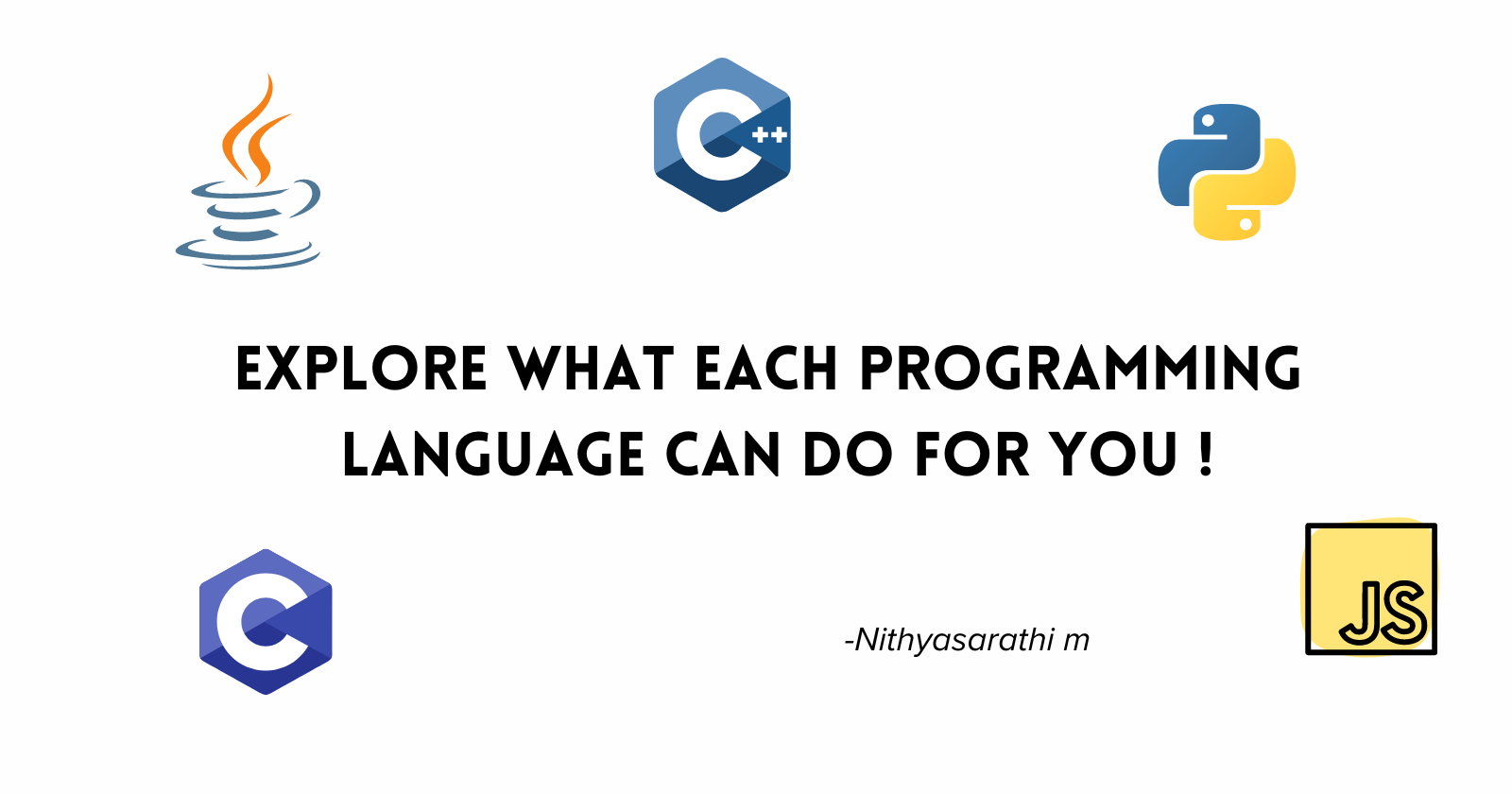No best programming language ? Here's what I'm learning on my SDE journey !
 Nithyasarathi
Nithyasarathi
When we choose our career path in the computer science domain, which ultimately leads to IT, we are often forced to learn multiple programming languages.
But why?
If there are many programming languages with the same operations, functions, and programming concepts, why are there multiple languages?
Some people argue that Java is the best, while others defend C, and some advocate for C++. Most young freshers who are learning for the first time say Python is the best of all.
But the honest truth is that if some people debate which programming language is easier to learn and compare one language with another, they are only comparing syntax and not the purpose. This clearly shows that they are not passionate software developers.
Learning many languages raised one question :
Which is best and where I'm going to apply them ?
When I was learning HTML, CSS, and JavaScript, I could easily see where they applied in the real world
—designing web pages, making them responsive, and adding functionality. It made sense why I was learning those languages.
This experience sparked my curiosity, and I began exploring the web to understand the purpose of each and every programming language I had already learned.
1. C
Purpose: C is a low-level, procedural programming language that gives you close control over hardware and memory. It's known for its efficiency and is often used in areas where performance is critical.
Where it’s used:
Operating Systems: Parts of Windows, Linux, and macOS are written in C.
Embedded Systems: Used to program microcontrollers and devices like washing machines, IoT gadgets, and more.
Compilers and Interpreters: Many compilers and interpreters for other programming languages are built using C.
Networking Applications: Commonly used in routers, switches, and network protocol development.
2. C++
Purpose: C++ builds on C by adding object-oriented programming, which makes it great for large, complex applications where both performance and modularity are important.
Where it's used:
Game Development: C++ is used to create high-performance games and game engines (like Unreal Engine).
High-Performance Software: Simulations, 3D graphics, and real-time systems rely on C++ for fast processing.
Finance: It’s used in trading systems, where even milliseconds of speed can make a difference.
Operating Systems and Browsers: C++ plays a role in web browsers (like Chrome) and parts of operating systems.
3. Java
Purpose: Java is a high-level, object-oriented language that runs on different platforms using the Java Virtual Machine (JVM). It's popular for large applications and Android development.
Where it's used:
Web Applications: Java is often used for backend systems in large-scale apps like banking or healthcare.
Android Development: Many Android apps are built in Java (or Kotlin, which works on the JVM).
Enterprise Systems: Java helps build big, scalable software like e-commerce platforms and customer management systems.
Big Data: Java-based tools like Apache Hadoop and Kafka are essential in managing big data.
4. Python
Purpose: Python is known for its simplicity and versatility, making it great for rapid development, automation, and data science.
Where it's used:
Web Development: Frameworks like Django and Flask are commonly used to build websites and web apps.
Data Science and Machine Learning: Python dominates here, with libraries like Pandas, NumPy, and TensorFlow making data analysis and AI easier.
Automation and Scripting: Python automates repetitive tasks and scripts for cloud environments and DevOps.
Scientific Research: It’s widely used in academia for fields like biology, physics, and computational science.
Artificial Intelligence: Python is the go-to language for AI and deep learning applications.
During my research, I discovered that every programming language has its own unique purpose and is efficient in its own way. Comparing them based only on syntax isn’t appropriate. Once someone understands the purpose of a language, they’re less likely to compare it with others.
As I realized,
'If someone learned about the purpose of any programming language, they won’t compare any language with others.'
This insight sparked my curiosity to dive deeper into each language. When you start to learn the core purpose of programming, you'll find that you naturally become passionate about learning software development—like me, and that’s why I’m here! 😅.
"Loved what you read? Fuel my creativity with a coffee! 😅☕".
Subscribe to my newsletter
Read articles from Nithyasarathi directly inside your inbox. Subscribe to the newsletter, and don't miss out.
Written by
